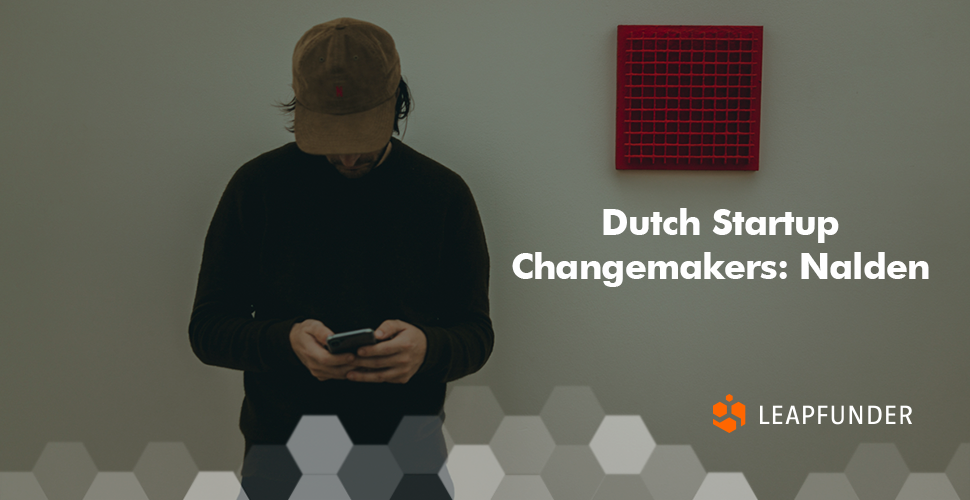Ronald Hans aka Nalden first came to prominence with his pioneering blog, Nalden.net, which he started as a teenager. He co-founded WeTransfer, bootstrapped it to profitability, raised $25M, opened an office in LA and left a decade later. In addition to WeTransfer, he is the co-founder of the design studio Present Plus and is now building Adelee, a private social network for you and your inner circle only. He’s both a founder and an investor so we asked him what he learned over the years in the startup world. Find out what is it about entrepreneurship that particularly attracts him and what he thinks needs to improve in the Dutch startup ecosystem.
1. Hi Nalden, thank you for agreeing to do the interview. Could you tell us a bit about your background and how you first entered the startup world? You started building websites at the age of 13. Where did the interest in the digital world come from?
Cheers! Thanks for having me. My interest in technology started at a young age due to playing video games. After discovering the world wide web and feeling connected to like-minded people I started building websites, just as a means of expressing myself, I guess. This evolved to blogging and that kind of decided the course of my life as a teenager. It’s a combination of a DIY mindset, learning by doing, playing around, experimenting with new stuff online while being connected to peers doing similar things.
2. You started with a blog at the age of 16, founded WeTransfer, co-founded Present Plus and Present Plus Film. Now you’re building Adelee, a private social network. How did you go from blogging to becoming a serial entrepreneur? What is it about entrepreneurship that particularly attracts you?
Let’s say I like the vehicle of a startup, which is all about experimenting, failing and learning fast. I like to kickstart things, ideas, movements, counter cultures. Or maybe it’s even simpler, I like to try. When I was a bit younger I tried many things. Now I’m a bit more selective due to the phase I’m in my life. Yet being a parent is the one thing that trumps everything.
3. What are the lessons for founders you’ve learned throughout your journey?
Well, some personal lessons are that it took me a long time to destroy the idea that you have to be constantly working or grinding in order to be successful. Whatever successful means. How to allocate your finite time and energy efficiently is something you constantly have to revisit. And the most important thing is to know yourself. Really understanding who you are helps to interact with the world around you. Stay healthy, stay sane.
4. You’re also an investor. How does it feel to support other founders in their journey after founding several startups yourself?
I feel privileged to support other founders by sharing perspectives, opinions and experiences. It’s good fun because with angel investing you kind of get paid for being right first, and to be first, you can’t wait for consensus. It’s a bet on people. These bets are great because they have nonlinear outcomes, but on the downside, you can only lose 1x. On the upside, you can make 10,000x. Regardless of the outcomes, my thesis is as follows:
- Do I like them?
- Can I learn something I want to learn?
- Will this journey have good economics?
5. What do you think are the next big things in the startup world? What do you predict for the startup ecosystem in the Netherlands?
In order for any ecosystem to thrive, we need founders dedicated to spending at least a decade building things no one else does. In order to support founders, we need a healthy investment community that is willing to take high-risk bets early on and double down when things are scaling. Luckily, in Europe, the ecosystem is only getting better & better.
Locally, it’s great to see initiatives like NP Hard or Operator Exchange with founders and operators who have built big things before, sharing dealflow. Another thing is to reward employees via employee stock option plans, yet these stock options are still taxed via payroll tax (at a high rate compared to, for example, capital gains tax as is the case in several other countries). That needs to improve to attract more talent, which I believe is on the agenda.
Thanks a lot for sharing your insights, Nalden. We wish you the best of luck in your future endeavours.
Join our network of startups & investors!

